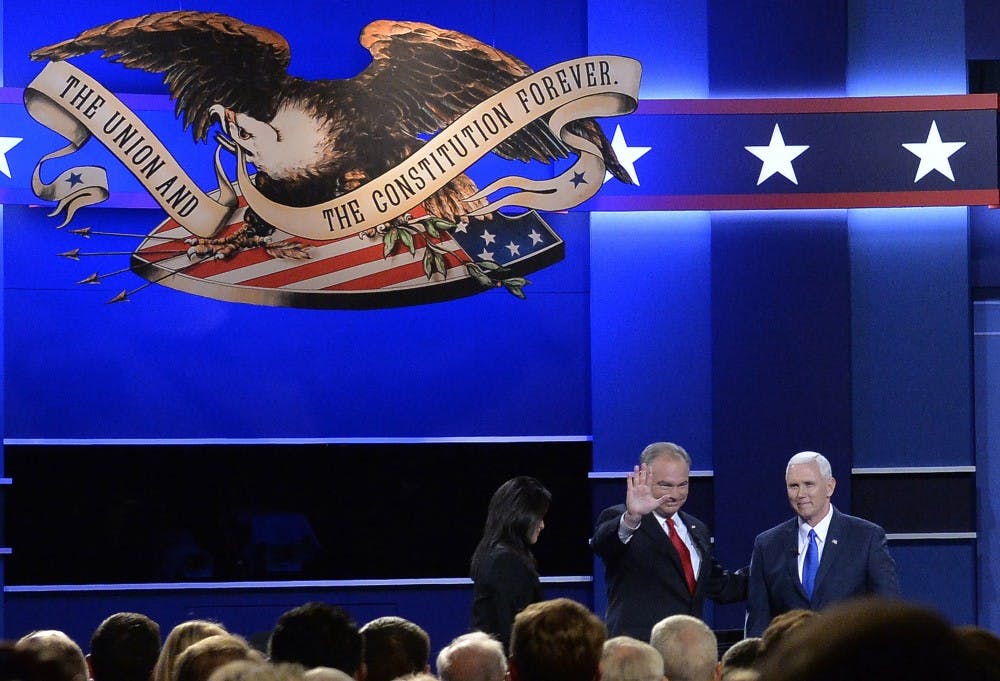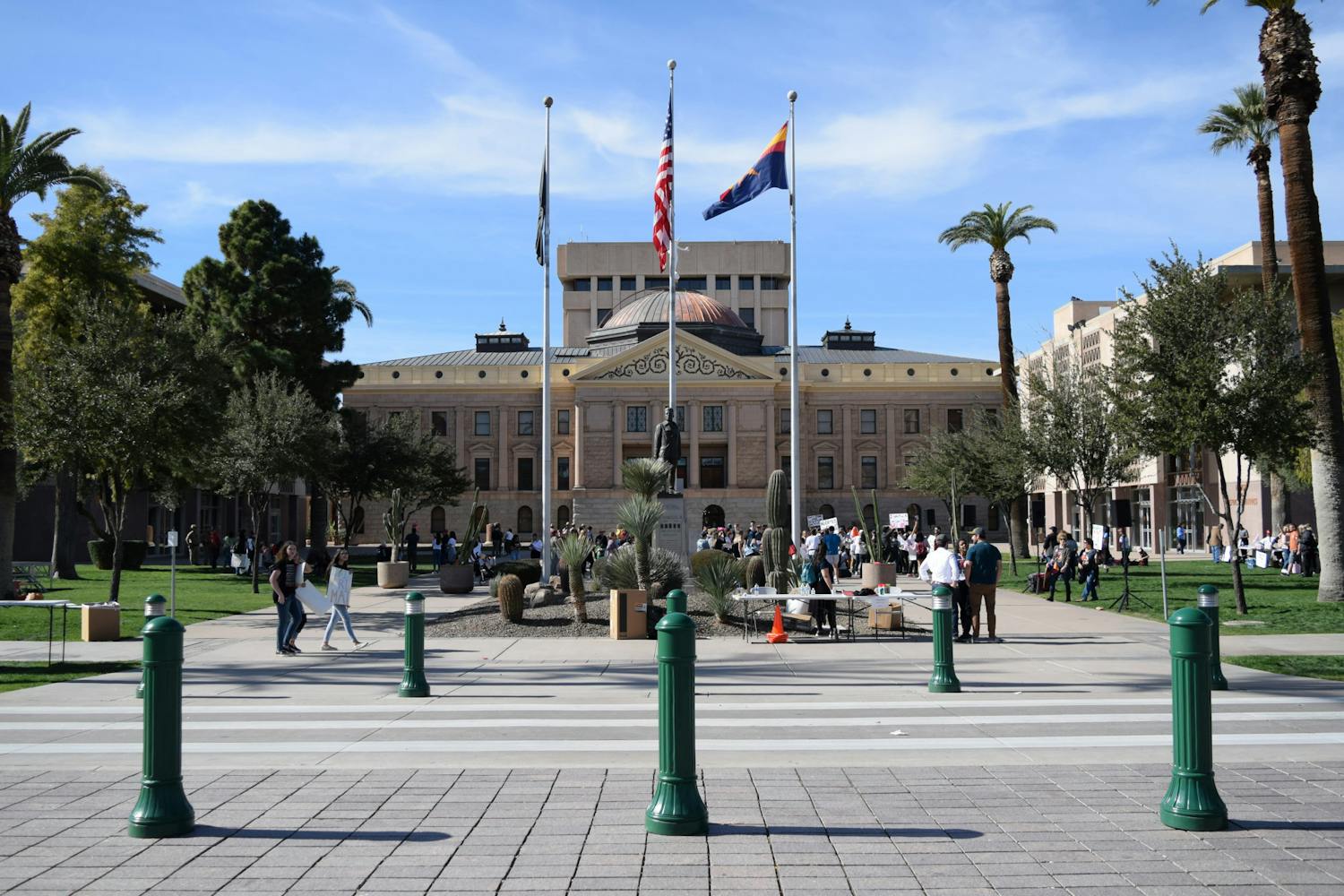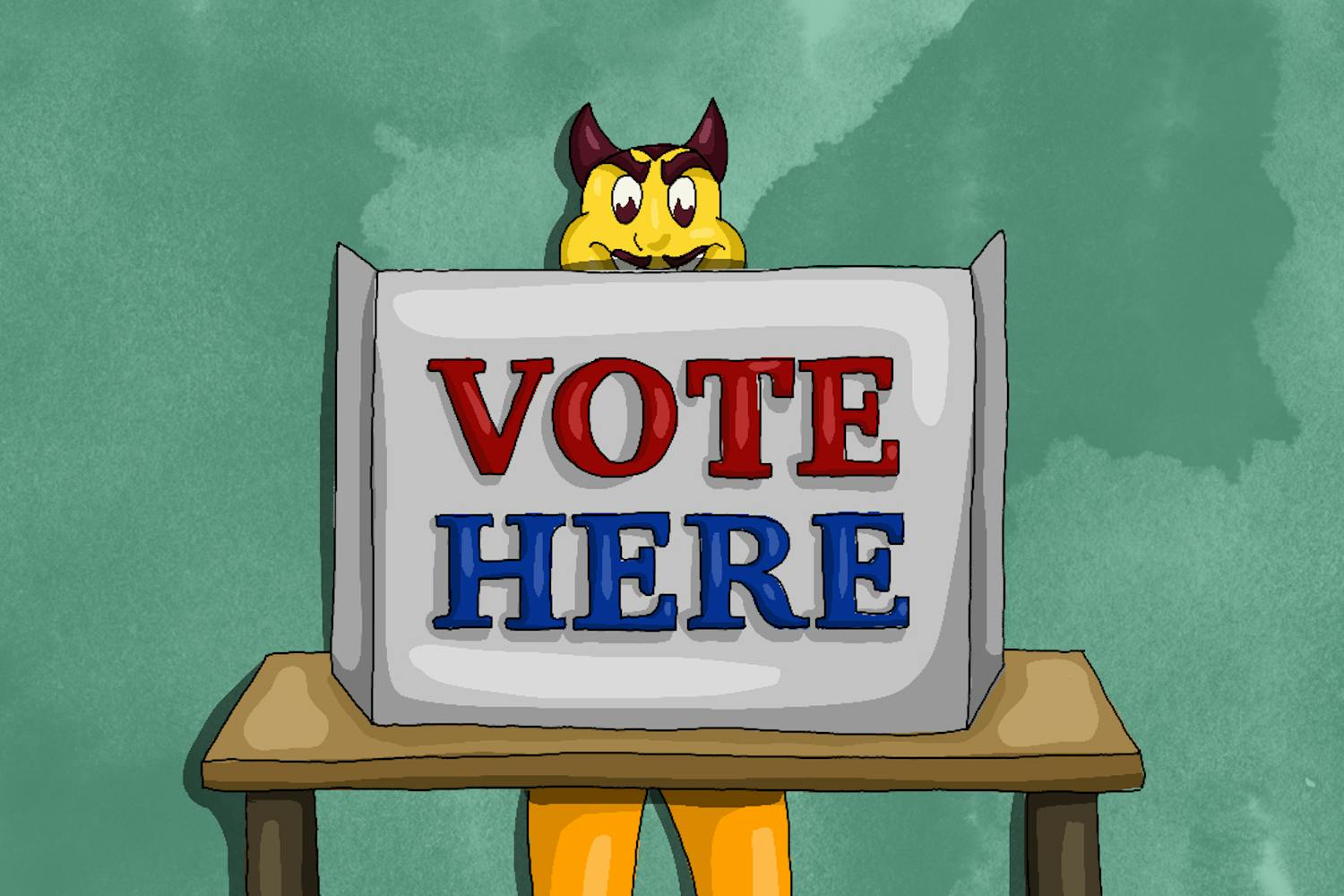Last night, the Vice Presidential debate took place at Longwood University in Farmville, Virginia. Indiana Governor Mike Pence and Virginia Senator Tim Kaine squared off in a heated battle over policy and defense of their candidates.
This debate proved that, especially in this election cycle, the vice presidential candidates truly matter to voters.
Roughly 40 to 50 million people tuned in to watch the debate, a smaller audience than in 2012 and 2008, but a large audience nonetheless.
Republican nominee Donald Trump and his Democratic counterpart Hillary Clinton are the two most unfavorable presidential candidates in history. Voters are looking for something, anything really, that will make either appear more attractive on the ballot.
"I think that this year people are voting for a lot more than the commander in chief," Arizona State Senator Andrew Sherwood said. "People are voting against the person they dislike more and the direction they don't want to go in."
These potential vice presidents can make or break voters' decisions this November.
Tim Kaine is a Democratic senator and former governor from a battleground state, he is fluent in Spanish and is relatively young for a politician. This gives him the advantage with independents, Hispanics and Millennials.
Mike Pence is the unpopular Republican governor of an already safely "red" state, a 10 year veteran congressman and very unknown to the public. This gives him the advantage with Republicans in swing states and older voters.
Both have their advantages and disadvantages, but being unknown makes them the deciding factor when people go to vote this November.
There are no prejudices against them, besides the fact that they are partnered with either Clinton or Trump, and that gives the public the chance to hear their sides of the story and defend their candidate.
They can discuss policy and issues without the predetermination that either Clinton is lying or Trump is just being Trump.
US Election: Why the VP picks could matter more than usual this time https://t.co/8GRRXWlKiL
— Richie Callander (@richcal666) July 25, 2016
Also, and I'm not saying this is likely to happen, but some people will be looking at these potential vice presidents in case of the off chance that either Clinton or Trump kick the bucket while in office and one of them will have to take over the remainder of the term.
But when all is said and done, you ultimately have a decision to make this November when you either enter the voting booth or fill out your absentee ballot.
Doing your homework on these vice presidential candidates might be your best bet at making an informed decision instead of voting blindly for the lesser of two evils.
Reach the columnist at abundy@asu.edu or follow @abkbundy on Twitter.
Like The State Press on Facebook and follow @statepress on Twitter.
Editor’s note: The opinions presented in this column are the author’s and do not imply any endorsement from The State Press or its editors.
Want to join the conversation? Send an email to opiniondesk.statepress@gmail.com. Keep letters under 300 words and be sure to include your university affiliation. Anonymity will not be granted.




